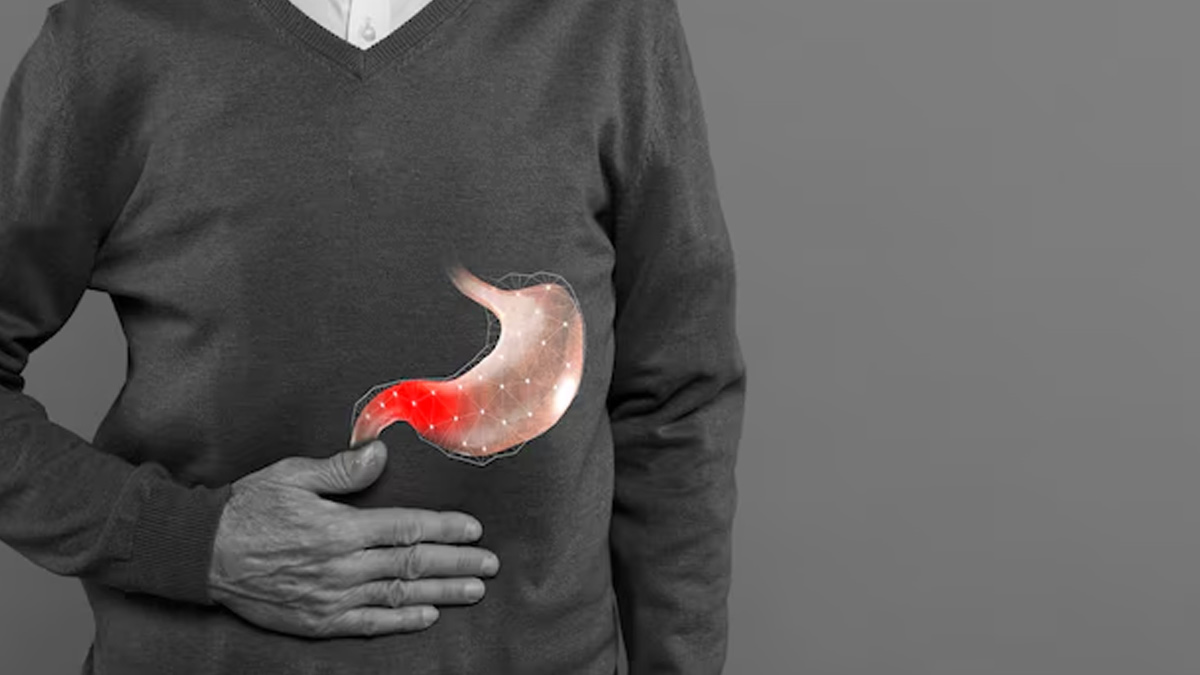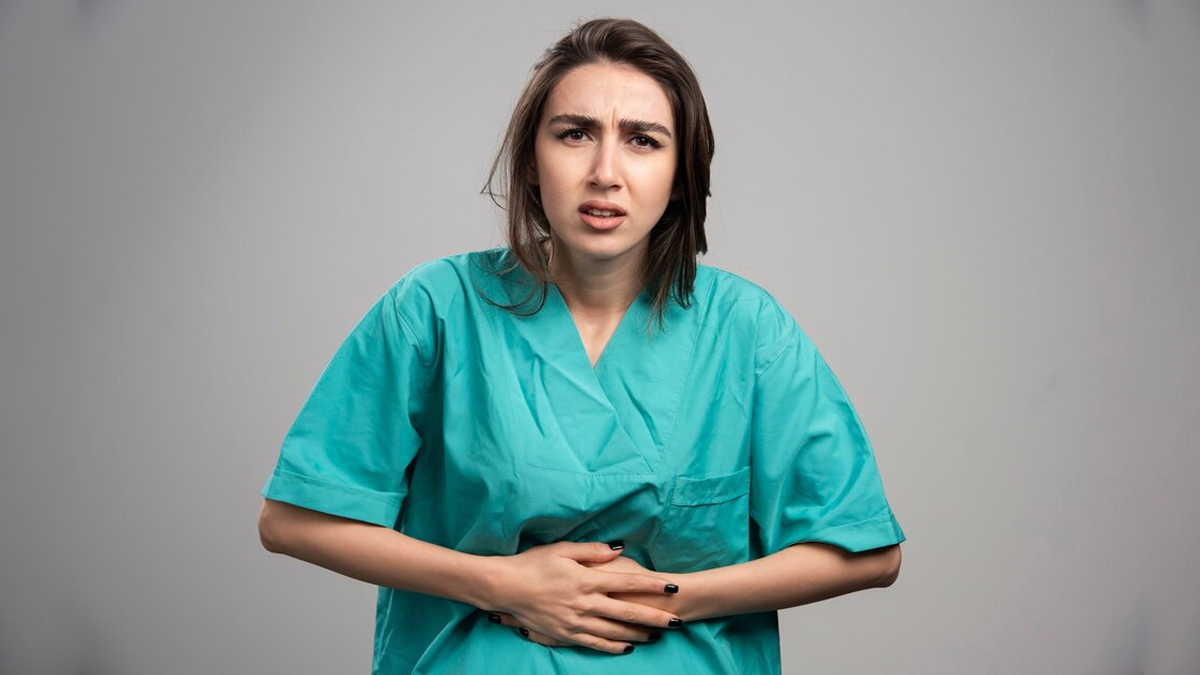
Stomach cancer, or gastric cancer, originates in the lining of the stomach when cells begin to grow uncontrollably, forming a tumour. Symptoms can include persistent indigestion, stomach pain, and sudden unexplained weight loss, although some individuals may remain asymptomatic. While anyone can develop stomach cancer, certain factors, including gender differences, can increase the risk. Keeping this factor in mind, we asked Dr Amit Upadhyay, Senior Consultant - Oncology and Hemato-Oncology, PSRI Hospital, New Delhi, who, between men and women, are more at risk of the disease, and here’s what he told us.
Table of Content:-
Also Read: Stomach Cancer Early Symptoms: Don't Ignore These Signs On Your Face
How Common Is Stomach Cancer?

According to the 2022 GLOBOCAN data, stomach cancer is the fifth most common cancer in the world, accounting for 4.9% of new cases and 6.8% of cancer deaths.
In general, the global cancer statistics for 2022 revealed nearly two crore new cancer cases and 90.7 lakh cancer deaths worldwide, according to the International Agency for Research on Cancer (IARC). Lung cancer was the most diagnosed (12.4%) and deadliest (18.7%), followed by breast, colorectal, prostate, and stomach cancers. Breast and lung cancers were the leading types among women and men, respectively. Cancer incidence rates varied significantly across regions, with the highest in Australia/New Zealand and the lowest in parts of Africa and Asia.
The report highlighted that demographic trends could lead to 3.5 crore new cases annually by 2050, stressing the need for prevention strategies targeting key risk factors like smoking, obesity, and infections to reduce cancer diagnoses and save lives globally.
“Stomach Cancer Relatively More Common In Men Than Women”
“Gastric cancer is relatively common in men as compared to women,” said Dr Upadhyay, adding that several studies have found that oestrogen exposure lowers the risk of gastric cancer.
He explained, “Females, castrated males, and oestrogen-treated male rats exhibited reduced rates of poorly differentiated gastric cancer. This shows that oestrogens may have a preventive effect against gastric cancer. This protective effect might be attributable to its capacity to control cell development and differentiation, reduce inflammation, and alter immunological response.”
Furthermore, oestrogen enhances DNA repair and inhibits cancer cell development due to its anti-proliferative properties, he added.
A 2022 study published in the World Journal of Gastroenterology also highlighted that stomach cancer is significantly more prevalent in men than in women, with men being twice as likely to develop the disease.
In 2020, it was the most commonly diagnosed cancer in men in seven Asian countries, including Iran and Afghanistan, and the leading cause of cancer deaths in ten countries, spanning Asia, Africa, and the Americas," researchers noted, adding that for women, stomach cancer was not the most diagnosed cancer in any country but was the leading cause of cancer deaths in three countries: Tajikistan, Bhutan, and Peru.
Globally, stomach cancer incidence and mortality increase with age and are rare in individuals under 45 years.
Additionally, some scientists have proposed that lifestyle variations, such as food and smoking, may explain the disparity, but mounting evidence shows that the discrepancies are found in fundamental biological differences between men and women.
Also Read: Oesophageal Cancer: Innovations In Surgical Techniques for better treatment
Factors That Increase The Risk Of Stomach Cancer

Dr Upadhyay highlights one of the most common factors contributing to stomach cancer risk, which is Helicobacter pylori (H. pylori) infection.
H. pylori is a bacterium that infects the stomach and upper small intestine and is the leading cause of peptic ulcers.
According to the National Cancer Institute (NCI), although H. pylori infection does not itself cause any illness, chronic infection causes long-lasting inflammation in the stomach (called non-atrophic gastritis), which can lead to several possible conditions, including certain types of stomach (gastric) cancer, particularly gastric adenocarcinoma and gastric mucosa-associated lymphoid tissue (MALT) lymphoma, which is a rare type of non-Hodgkin lymphoma.
Additionally, both environmental and genetic factors contribute to the genesis of stomach cancer, said Dr Upadhyay.
He explained, “Hereditary Diffuse Gastric Cancers (HDGC) account for about 1-3% of all stomach cancers. The condition is caused by a CDH1 gene mutation. HDGC is a hereditary cancer syndrome that increases the risk of diffuse stomach cancer. People who inherit the HDGC genetic mutation face a significant chance of getting stomach cancer at a young age.”
Moreover, cigarette smoking, alcohol use, and eating fattier meals can also contribute to the risk of stomach cancer and other health problems.
How Can Men And Women Reduce Their Risk Of Stomach Cancer?

While there is no guaranteed way to prevent stomach cancer, there are certain measures people can take to reduce their risk.
Dr Upadhyay advised, “A diet high in fresh fruits and vegetables, as well as minimising alcohol use, may assist to reduce risk. Additionally, smoking is also a risk factor for stomach cancer; therefore, staying away from the butt and quitting smoking if you do can lower the risk of developing stomach cancer.”
“Aside from food, risk factors for stomach cancer include smoking and infection with Helicobacter pylori, a bacteria found in the stomach,” he added.
Therefore, it is crucial to not only make healthier lifestyle choices but also assess your risk factors and consult a doctor on ways to mitigate the risks.
Also watch this video
Read Next
Sidhu's Diet Cure for Cancer Raises Concerns: Expert Advocates For Evidence-Based Treatment
How we keep this article up to date:
We work with experts and keep a close eye on the latest in health and wellness. Whenever there is a new research or helpful information, we update our articles with accurate and useful advice.
Current Version
